MercoPress. South Atlantic News Agency
Fisheries
-
Friday, January 29th 2016 - 04:11 UTC
Canadian company interested in Uruguay's main (broke) fish industry complex
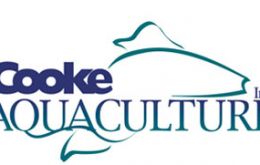
A Canadian corporation, Cooke Aquaculture is apparently interested in taking over Uruguay's main fish industry company, FRIPUR, which is under administration and liquidation and ended all operations almost six months ago.
-
Thursday, January 28th 2016 - 06:02 UTC
HMS Protector in New Zealand as part of her Southern Ocean patrol
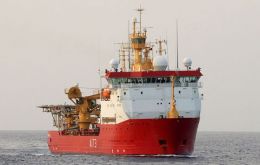
HMS Protector has arrived in Christchurch, New Zealand, as part of her historic Southern Ocean patrol. The arrival of the specialist ice patrol ship marks the close cooperation that exists between the UK and New Zealand in upholding the conservation rules of the Antarctic Treaty System and to protect the Southern Ocean from illegal fishing activities.
-
Tuesday, January 26th 2016 - 12:22 UTC
Dire state of fisheries and worsening air pollution, revealed by Environmental performance index
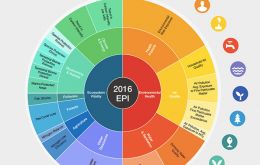
The worrying state of many fisheries and worsening air pollution are some of the problems revealed by the 2016 Index of Environmental Performance (EPI), an initiative that assesses how 180 countries protect ecosystems and human health of environmental damage.
-
Tuesday, January 19th 2016 - 07:04 UTC
Ice Patrol HMS Protector concludes historic five week patrol to East Antarctica and Ross Sea
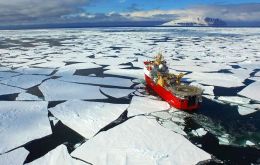
The Royal Navy’s Ice Patrol ship has just completed a historic five week patrol to the East Antarctic and Ross Sea. HMS Protector is the first Royal Navy, or UK Government, vessel to have visited the region in 80 years or to have travelled so far south having dipped below 77 degrees latitude.
-
Friday, January 15th 2016 - 09:04 UTC
Falklands offers a PhD studentship opportunity in marine ecology research
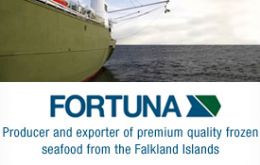
Falklands fishing company Fortuna Ltd., the Falklands' Fisheries Department and the South Atlantic Environmental Research Institute, SAERI are sponsoring a research opportunity for a Science honors graduate to embark on a career in academic or applied marine ecology in the Islands.
-
Wednesday, January 6th 2016 - 11:57 UTC
Spanish company plans to buy four new shrimp vessels to operate in Argentina

Spanish vertically integrated seafood company Iberica de Congelados (Iberconsa) will invest up to €27 million in its Argentine and Namibian operations, the company's CEO announced. Following its private equity Portobello Capital majority stake acquisition in Iberconsa, the seafood company will carry out a “strong investment plan” to boost Argentina shrimp output and to enhance Namibia's plant capabilities in value-added production.
-
Tuesday, January 5th 2016 - 08:12 UTC
Ascension Island to become a marine reserve as big as the UK, in 2017

The British Overseas Territory of Ascension Island is set to become a marine reserve almost as big as the UK, the British government has announced. Using a £300,000 grant from the Bacon Foundation, the UK government will close 52.6% of the south Atlantic island's waters to fishing. In the rest of the waters there will be a monitored tuna fishery.
-
Monday, January 4th 2016 - 07:39 UTC
Chinese jigger heading for South Atlantic catches fire in Montevideo port

A Chinese jigger flying a convenience flag and ready to leave Montevideo for the South Atlantic fully provisioned suffered a serious fire which apparently started in the engine room and rapidly spread to the rest of the vessel.
-
Wednesday, December 30th 2015 - 03:22 UTC
Major Spanish company in frozen fish industry, Iberconsa, sold to Portobello Capital
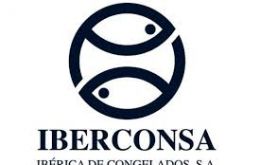
The Spanish manager of equity Portobello Capital has bought a majority stake in Iberconsa (Iberica de Congelados), the third company in the sector in Spain and the first one to capture and produce frozen hake on board.
-
Wednesday, December 30th 2015 - 02:24 UTC
Russian polar vessel and helicopters will supply Argentine Antarctica bases

For the eighth season, Argentina's Antarctic bases and stations are to be supplied by the Russian polar vessel Vasily Golovnin from Arkadia Ltd. This has been going on since 2007 when the Argentine flagship ice-breaker Almirante Irizar caught fire in the high seas and is still in repairs waiting for the necessary funds.
